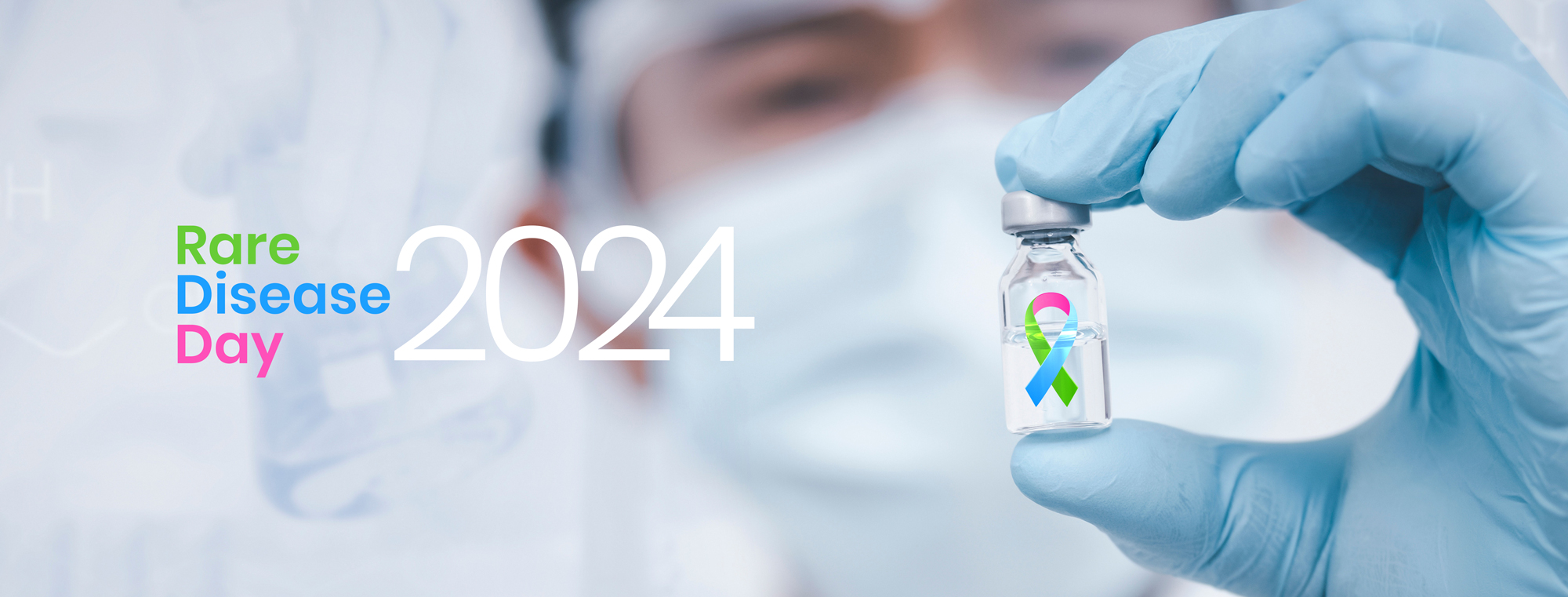As we reflect on Rare Disease Day, let us acknowledge the resilience, tenacity, and unity within the rare disease community. It is a global initiative to contribute to a brighter future for individuals and families affected by rare conditions and help drive progress in rare disease research and healthcare. Addressed as a special instance, the day is dedicated to advocating for better access to treatment, providing support, and encouraging research into finding cures.
In this blog, we emphasize the importance of Rare Disease Day and highlight its global collaborations, prioritizing the world for a healthier future ahead.
Importance of Rare Disease Day (RDD)
Although all diseases can inflict tremendous suffering on patients, rare diseases pose more significant challenges than common disorders. The families and caretakers are also affected because of the guilt of not providing proper support for the treatment.
These diseases often involve severe, progressive illness and disability and may lead to premature death. In addition, rare diseases frequently affect more than one organ system and require collaborative research structures. Furthermore, being very rare, the treating healthcare team often misdiagnoses the patients due to overlapping symptoms seen with the common (non-rare) diseases.
Understanding rare diseases and raising awareness
Rare diseases, also known as orphan diseases, collectively affect millions globally. Despite their rarity, the cumulative impact of rare diseases underscores the need for targeted therapies and effective treatments. The small patient population makes it difficult to conduct traditional clinical trials, which typically require large sample sizes to ensure statistical significance.
Moreover, the cost of treatments for rare diseases can be restrictive, given the limited market potential compared to drugs targeting more common ailments.
In 2021, the UN adopted the first resolution to address the challenges of people living with rare conditions, especially in low- and middle-income countries. Around 80% of rare diseases have a genetic cause, almost 70% of which are present in childhood, and about 95% lack approved treatments. The average time for an accurate diagnosis is 4–8 years. And about 30% of children with a rare disease die before five years of age.
Regardless of the size of the population affected, investments in developing therapies for rare diseases have increased over the past few years, both in terms of new drug candidates and dollar value. Fueled by favorable government policies, including accelerated clinical development, incentives for pediatric drug development, extended exclusivity, and lower commercialization costs, there is an increased focus on rare diseases among pharmaceutical companies.
There is also a huge unmet medical need, with approximately 95% of rare diseases having no FDA-approved treatment. Besides large pharmaceutical companies, there are also smaller biotechnology companies. With the rise in the number of pharmaceutical players involved in the development of rare therapies and the rise in cell and gene therapy assets and technology, the market for rare disease treatments is rapidly growing and becoming even more competitive, creating information gaps for the pharmaceutical companies in their clinical and commercial decision-making.
Objectives & accomplishments of Rare Disease Day
Rare Disease Day aims to spread awareness of various rare diseases in the respective countries since 2008. Since then, this global observance of Rare Disease Day has touched the lives of affected people and their caretakers and raised awareness about global collaborations addressing the novel challenges brought by the advancement of scientific research for new treatments.
Following are a few of the accomplishments of Rare Disease Day:
- Commencing a mutually beneficial dialogue among the patients affected by uncommon diseases.
- Bringing innovative research on uncommon illnesses and the development of diagnostics and therapies sponsored globally into the limelight.
- Congregating diverse people, carers, healthcare professionals, patient advocates, researchers, and governments.
- Through research and dedication to assisting patients with rare diseases.
Collaboration of drug development in rare disease
Advancements in technologies, such as targeted therapies for rare diseases,. Gene editing and precision medicine are revolutionizing the rare disease landscape. Additionally, collaboration between clinicians, researchers, and patient advocates is boosting a more inclusive approach to drug development.
A keen approach to the patient-centric research process represents a groundbreaking approach to rare disease research. Thus, these innovation trials streamline the research process by maximizing efficiency and simultaneously assessing multiple interventions in drug development services for rare diseases.
In the last few years, there has been an increase in the number of orphan drugs approved by the FDA. In 2022, the FDA approved 20 orphan drugs out of the Center for Drug Evaluation and Research’s (CRED) 37 novel drugs (54%), of which nine orphan drugs were granted fast-track approval (45%). In terms of therapeutic classification, 9 out of 20 are oncology molecules. Similarly, in 2021, the FDA approved 26 orphan drugs out of CRED’s 50 novel drugs (52%).
Some notable trends that also took place in the rare disease space are financial incentives, increased R&D spending, improved market access, a patient-centric approach, reduced patient burden in clinical trials, and technology adoption and expansion.
Conclusion
On Rare Disease Day, let’s adopt our commitment to embracing innovations in rare disease research and advocating inclusive patient-centric approaches by collaborating to create a brighter and more equitable future in healthcare.
Global Pharma Tek actively promotes Rare Disease Day, demonstrating a commitment to supporting individuals and families affected by these conditions and advocating for increased research and understanding.

